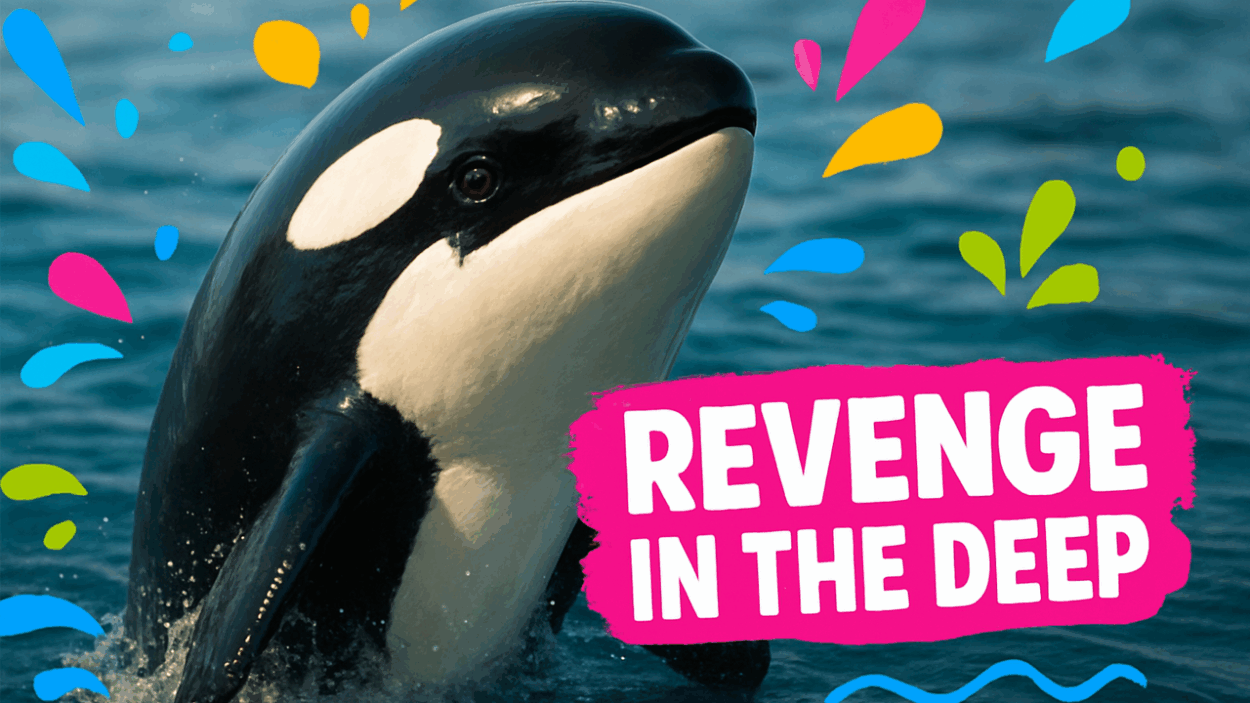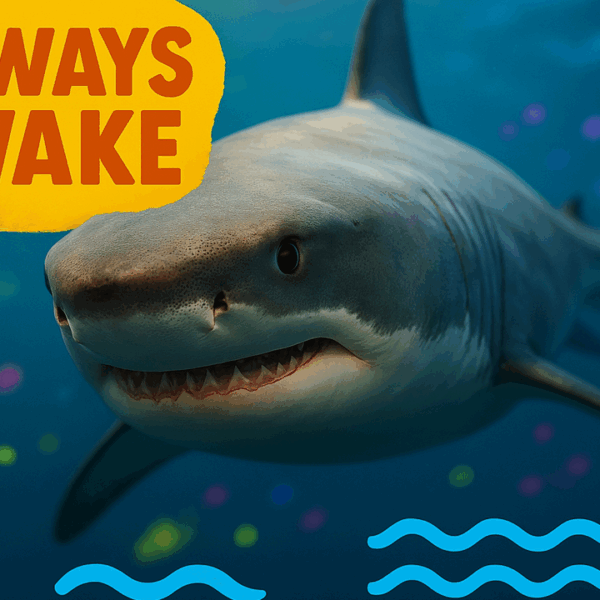When we think about revenge and long-term memory, we often assume these are uniquely human traits. However, the animal kingdom is full of surprising examples of creatures that remember wrongs and act on them later. From intelligent primates to unexpected species like crows and dolphins, animals that can hold a grudge demonstrate remarkable cognitive abilities that challenge our understanding of animal psychology and behavior.
Understanding which animals possess the memory and emotional complexity to harbor resentment isn’t just fascinating—it’s crucial for anyone working with wildlife, keeping pets, or simply trying to appreciate the depth of animal intelligence. These grudge-holding behaviors often stem from the same survival instincts that help animals thrive in the wild, making them both impressive and sometimes concerning when humans are involved. Let’s explore the remarkable world of vengeful animals and discover what drives their memorable responses to perceived threats and injustices.
Do Animals Really Hold Grudges Like Humans?
Yes, many animals do hold grudges, though their motivations and expressions differ from human revenge. Animal grudges typically stem from survival instincts rather than emotional spite. When an animal remembers a negative experience with a person, predator, or competitor, they’re often responding to a perceived threat to their safety, territory, or resources.
Scientific research has shown that animals like elephants, corvids (crows and ravens), and primates can remember specific individuals who have wronged them for months or even years. They demonstrate this memory through avoidance behaviors, aggressive responses, or even coordinated group actions against the offending party. However, it’s important to note that what we interpret as “grudges” may actually be sophisticated threat assessment and memory systems that help these animals survive in complex social environments.
Which Animals Are Most Likely to Remember and Seek Revenge?
The animals most capable of holding grudges typically share certain characteristics: high intelligence, complex social structures, and excellent long-term memory. Primates like chimpanzees and macaques top this list, often remembering conflicts and responding strategically days or weeks later. Elephants are legendary for their memory and have been documented tracking down humans who have threatened their herds.
Corvids, including crows and ravens, are perhaps the most surprising grudge-holders. These birds can recognize individual human faces and pass this information to their offspring, creating multi-generational “grudges” against specific people. Marine mammals like dolphins and killer whales also demonstrate remarkable memory for both positive and negative interactions, sometimes carrying behavioral responses across years of separation.
How Long Can Animals Remember Bad Experiences?
The duration of animal memory varies dramatically by species and the significance of the experience. Some animals can remember negative encounters for surprisingly long periods. Elephants have been documented remembering and avoiding areas where traumatic events occurred decades earlier. Their exceptional memory helps them navigate complex social relationships and environmental challenges throughout their 60-70 year lifespans.
Crows and ravens can remember human faces for at least five years, and they actively teach their young to recognize and avoid specific individuals. Primates like chimpanzees have been observed holding grudges for months, waiting for the right moment to retaliate against group members who have wronged them. Even domestic animals like cats and dogs can remember negative experiences for years, affecting their behavior toward specific people, places, or situations long after the initial incident occurred.
Video
List of Animals That Can Hold A Grudge
| Name | Location | Memory Duration | Grudge Behavior Type | Scientific Name |
|---|---|---|---|---|
| American Crow | North America | 5+ years | Facial recognition and mob attacks | Corvus brachyrhynchos |
| African Elephant | Sub-Saharan Africa | Decades | Targeted avoidance and aggression | Loxodonta africana |
| Chimpanzee | Central and West Africa | Months to years | Strategic retaliation | Pan troglodytes |
| Bottlenose Dolphin | Worldwide oceans | Years | Social exclusion and harassment | Tursiops truncatus |
| Common Raven | Northern Hemisphere | 5+ years | Coordinated group responses | Corvus corax |
| Macaque Monkey | Asia and North Africa | Months | Hierarchical revenge | Macaca species |
| Orca | Global oceans | Years | Coordinated family responses | Orcinus orca |
| Domestic Cat | Worldwide | Years | Behavioral avoidance and marking | Felis catus |
| Scrub Jay | Western North America | Months | Food cache protection | Aphelocoma californica |
| Rhesus Macaque | South and Southeast Asia | Months | Social manipulation | Macaca mulatta |
| Domestic Dog | Worldwide | Years | Selective aggression | Canis lupus familiaris |
| Magpie | Europe, Asia, North America | Years | Nest site retaliation | Pica pica |
| Goose | Worldwide | Breeding seasons | Territorial harassment | Anser and Branta species |
| Parrots | Tropical regions worldwide | Years | Vocal and physical aggression | Psittaciformes |
| Octopus | Global oceans | Weeks to months | Targeted spraying and hiding | Octopus vulgaris |
| Baboon | Africa and Arabia | Months | Coalition building | Papio species |
| Camel | Arid regions worldwide | Years | Targeted aggression | Camelus species |
| Sea Otter | North Pacific Ocean | Months | Resource competition | Enhydra lutris |
| Hyena | Africa and Asia | Months | Clan-based retaliation | Crocuta crocuta |
| Pig | Worldwide | Months | Social avoidance | Sus scrofa |
| Horse | Worldwide | Years | Behavioral resistance | Equus caballus |
| Moose | Northern regions | Seasonal | Territorial aggression | Alces alces |
| Penguin | Antarctica and Southern regions | Breeding seasons | Mate competition | Spheniscidae |
| Seal | Coastal waters worldwide | Months | Territorial defense | Pinnipedia |
| Wolverine | Northern regions | Months | Scent marking and tracking | Gulo gulo |
Descriptions
American Crow
Crows can remember human faces for years and will actively dive-bomb or harass people who have threatened them, even teaching their offspring to recognize these individuals.
African Elephant
Elephants have exceptional memories and can remember specific humans or locations associated with trauma for decades, actively avoiding or confronting perceived threats years later.
Chimpanzee
Highly intelligent primates that plan revenge attacks against group members who have wronged them, often waiting weeks or months for the perfect opportunity to retaliate.
Bottlenose Dolphin
Dolphins demonstrate complex social grudges by excluding former allies from groups and engaging in coordinated harassment behaviors against individuals who have crossed them.
Common Raven
Ravens exhibit remarkable memory for negative interactions and will organize group attacks against perceived threats, sharing information about dangerous individuals across their social network.
Macaque Monkey
Various macaque species engage in sophisticated grudge-holding behaviors, remembering social slights and seeking opportunities to retaliate against higher or lower-ranking individuals.
Orca
Killer whales demonstrate long-term memory for negative encounters and will coordinate family pod responses against specific boats or individuals who have harmed their group.
Domestic Cat
House cats can hold grudges for years, avoiding specific people or locations and sometimes expressing their displeasure through territorial marking or aggressive behavior.
Scrub Jay
These intelligent birds remember which individuals have stolen from their food caches and will actively guard against or relocate stores when these thieves are present.
Rhesus Macaque
Rhesus macaques engage in complex grudge behaviors including recruiting allies to gang up on enemies and timing attacks for maximum social impact.
Domestic Dog
Dogs can maintain long-term negative associations with specific people, showing fear or aggression toward individuals who have mistreated them even years after the incident.
Magpie
Magpies remember humans who have disturbed their nests and will aggressively defend territory against these individuals in subsequent breeding seasons.
Goose
Geese can remember and target specific humans who have threatened their young or territory, often attacking the same individuals repeatedly during breeding seasons.
Parrots
Many parrot species demonstrate long-term memory for negative interactions, refusing to interact with certain people and sometimes displaying aggressive behaviors toward those who have wronged them.
Octopus
Octopuses can recognize individual researchers and will spray water or hide specifically from people who have handled them roughly during previous encounters.
Baboon
Baboons form complex social grudges and will build coalitions with other troop members to gang up on individuals who have previously caused them harm.
Camel
Camels are notorious for remembering mistreatment and will specifically target abusive handlers with kicks, spitting, or refusal to cooperate, sometimes years after the initial incident.
Sea Otter
Sea otters can remember individuals who have stolen their food or territory and will aggressively defend resources against these specific competitors in future encounters.
Hyena
Spotted hyenas demonstrate sophisticated grudge behaviors within their clan hierarchies, remembering social conflicts and seeking opportunities to retaliate against rivals.
Pig
Domestic pigs have excellent memories for negative experiences and will actively avoid or show aggression toward humans who have mistreated them, even after extended periods.
Horse
Horses can hold grudges against specific handlers who have abused them, showing fear, resistance, or aggressive behavior toward these individuals even years later.
Moose
Moose can remember specific locations or individuals associated with stress and will show heightened aggression toward familiar threats during subsequent encounters.
Penguin
Some penguin species remember romantic rivals and will specifically target these individuals during breeding seasons, engaging in aggressive behaviors to protect their mates.
Seal
Seals can remember specific individuals who have threatened their territory or young and will show increased aggression toward these threats in future encounters.
Wolverine
Wolverines have excellent spatial memory and can remember the location of conflicts, returning to mark territory aggressively or confront individuals who have previously challenged them.


